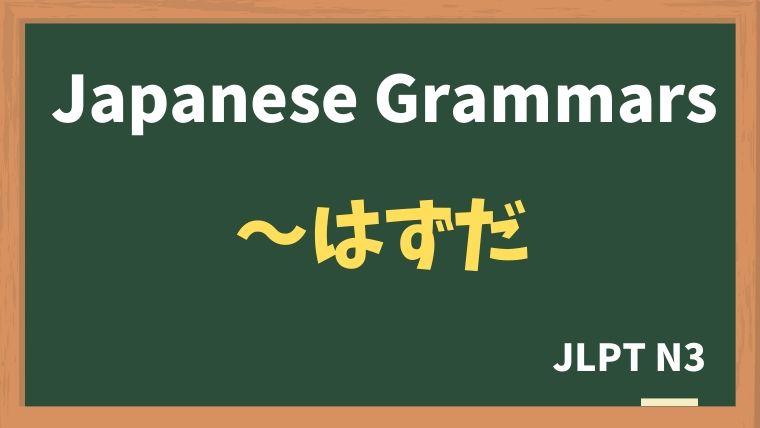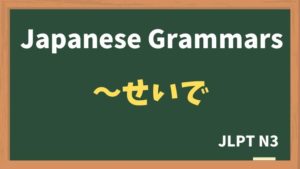
Explanation:〜はずだ
fa-check-circleMeaning
"ぜったいに〜だ"
"〜はずだ" means "supposed to / should be". This express one's conjecture with some certainty.
Used to express a strong expectation or belief that something is true based on reasoning or evidence. It indicates that the speaker is quite confident about the outcome or situation.
fa-check-circleForm
V(plain form)+ はずだ
イA(plain form)+ はずだ
ナA + なはずだ
N + のはずだ
fa-check-circlePoints
- Expressing Strong Expectation: "〜はずだ" is used when the speaker expects something to be true based on information they have. It reflects a high degree of certainty.
- Logical Conclusion: The expectation is typically based on logical reasoning or known facts. The speaker has a reason to believe that the situation should be as they expect.
- Used in Both Positive and Negative Forms: "〜はずだ" can be used to express both positive and negative expectations.
fa-check-circleJLPT Level
N3
Sample sentenes
今日は日曜日だから、銀行は閉まっているはずだ。
Banks must be closed, because today is Sunday.
トムさんは日本に10年住んでいたから、日本語が上手に話せるはずだ。
Tom is supposed to speakJapanese fluently because he lived in Japan for 10 years.
あのレストランには毎日たくさんの人が並んでいるし、きっと料理はおいしいはずだ。
That restaurant’s food must be delicious because many people line up every day.
彼はたくさんブランド品を持っているので、お金持ちのはずだ。
He must be rich because he has a lot of branded items.
二人が別れた理由について、マークさんは何か知っているはずだ。
Mark must know something about the reason they broke up.
この計画はうまくいくはずだ。
This plan should work out well.
Vocabulary
| Japanese |
English | |
| 並ぶ | ならぶ | to line up |
| 別れる | わかれる | to break up |
| 計画 | けいかく | plan |






